There was a time when “Internet Plus” was the buzzword for every entrepreneur in China. Optimism on the topic was pervasive, as many thought it was a vital driver in changing conventional industries.
Gong Yu, CEO and founder of iQiyi, one of China's largest online video platforms, has found different results when it came to the film industry.
Speaking at the Internet Film Theme Forum of the 2019 Beijing International Film Festival (BJIFF) on Wednesday, Gong shared a series of data points to explain the significance of “Internet Plus” in the film industry.
“Since 1895, when the Lumière brothers invented film, the industry has a history of 124 years, while in China, the Internet is only 15 years old,” said Gong, during his presentation. “What does 124:15 mean?”
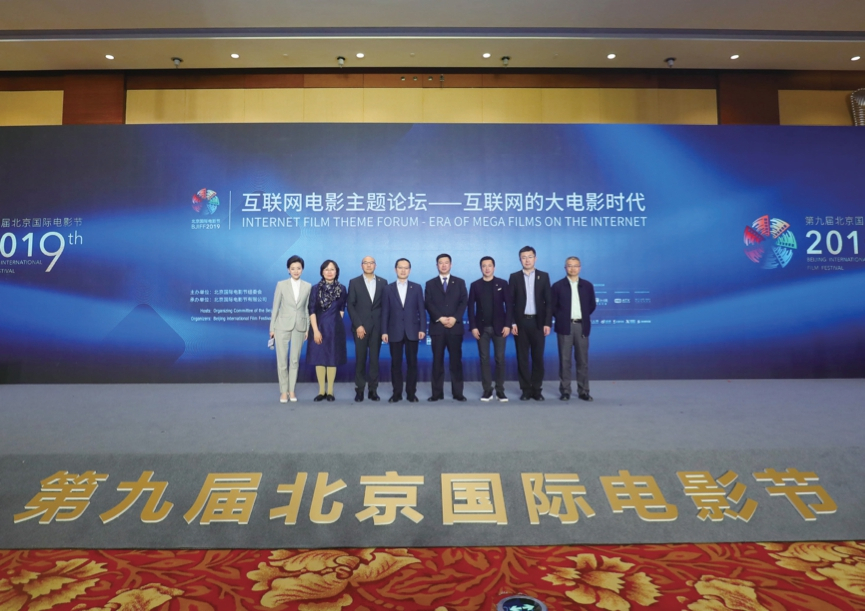
Attendees of the Internet Film Theme Forum – Era of Mega Films on the Internet pose for a photo. /Photo via BJIFF
Attendees of the Internet Film Theme Forum – Era of Mega Films on the Internet pose for a photo. /Photo via BJIFF
Gong said that the general box office for the Chinese film industry reached 60.9 billion yuan (9.09 billion U.S. dollars) in 2018, while the market scale for online videos stood at 201.6 billion yuan (30.1 billion U.S. dollars), of which 53.6 billion yuan (eight billion U.S. dollars) came from subscriptions.
“However, films contributed only a small portion to that income,” Gong observed, “far less than what dramas and variety shows have gained from the Internet.”
The figures seem promising with the mega films on the Internet, then what about all the caution, modesty and scruples? And Gong isn't the only one who holds such an attitude.
Technology, a key motivation in entertainment revolution
Gong explained the root of his worries during his presentation: The Internet has never thoroughly managed to combine with the film industry in China.
“We have managed to complete only two steps in the past 15 years: firstly, put the films from cinemas onto the video platforms; and secondly, we have changed the commercial format of ticket selling in cinemas,” Gong illustrated. “However, from the quality to the influence, the mega films online has nothing to compared with the traditional ones produced out of the industry.”
“In another word, the integration of the two is still lingering on the surface,” Gong continued, adding that what needs to be innovated is the commercial model, for instance, whether the Internet companies could play a bigger role in the game, such as its involvement in production of dramas and variety shows.
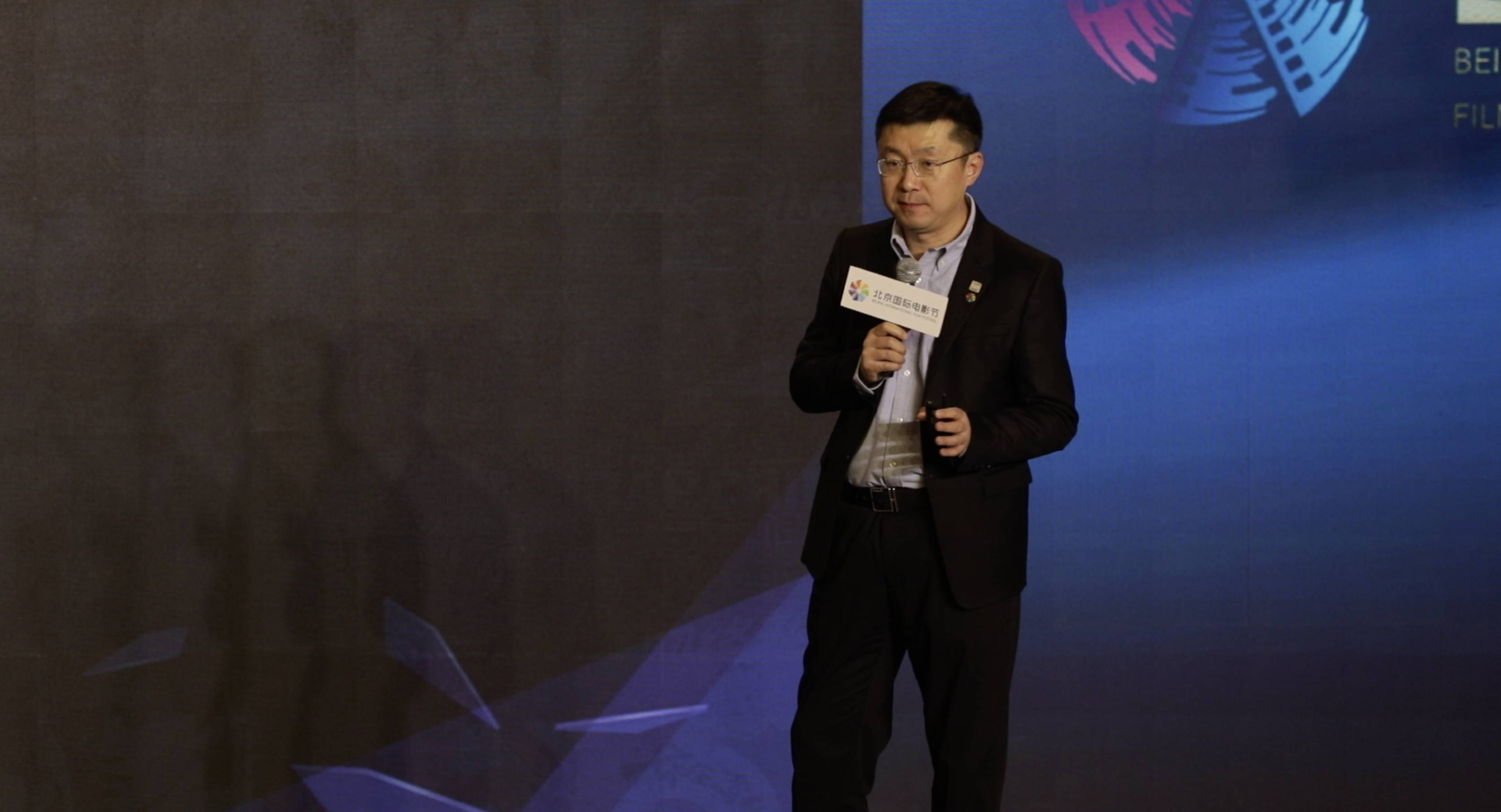
Gong Yu, CEO and founder of iQiyi, speaks during the forum. /CGTN Photo
Gong Yu, CEO and founder of iQiyi, speaks during the forum. /CGTN Photo
Gong said that in China, the major players in the drama productions are the Internet companies, instead of television companies. The volume of online dramas are two to three times of that of television, Gong added.
And there is the potential market for derivatives.
“I didn't see any domestic films that have generated any online games as widespread as the drama-derived ones,” said Gong. And games have been one of the most successful commercial models brought by the Internet.
“What we need to do is allowing the innovation to be motivated by technology, so as to satisfy the requirement in the revolution of the entertainment industry.”
“What we want to do is not to get a share of someone else's cake. We want to make a bigger cake, from which everyone could take their fair share,” said Gong, adding that the win-win mindset is essential.
What is the future? Conservative industry vs Internet corps
Wang Zhonglei took it slightly different. Wang is the CEO and co-founder of the Huayi Brothers Media Corp., a main player in the conventional film industry.
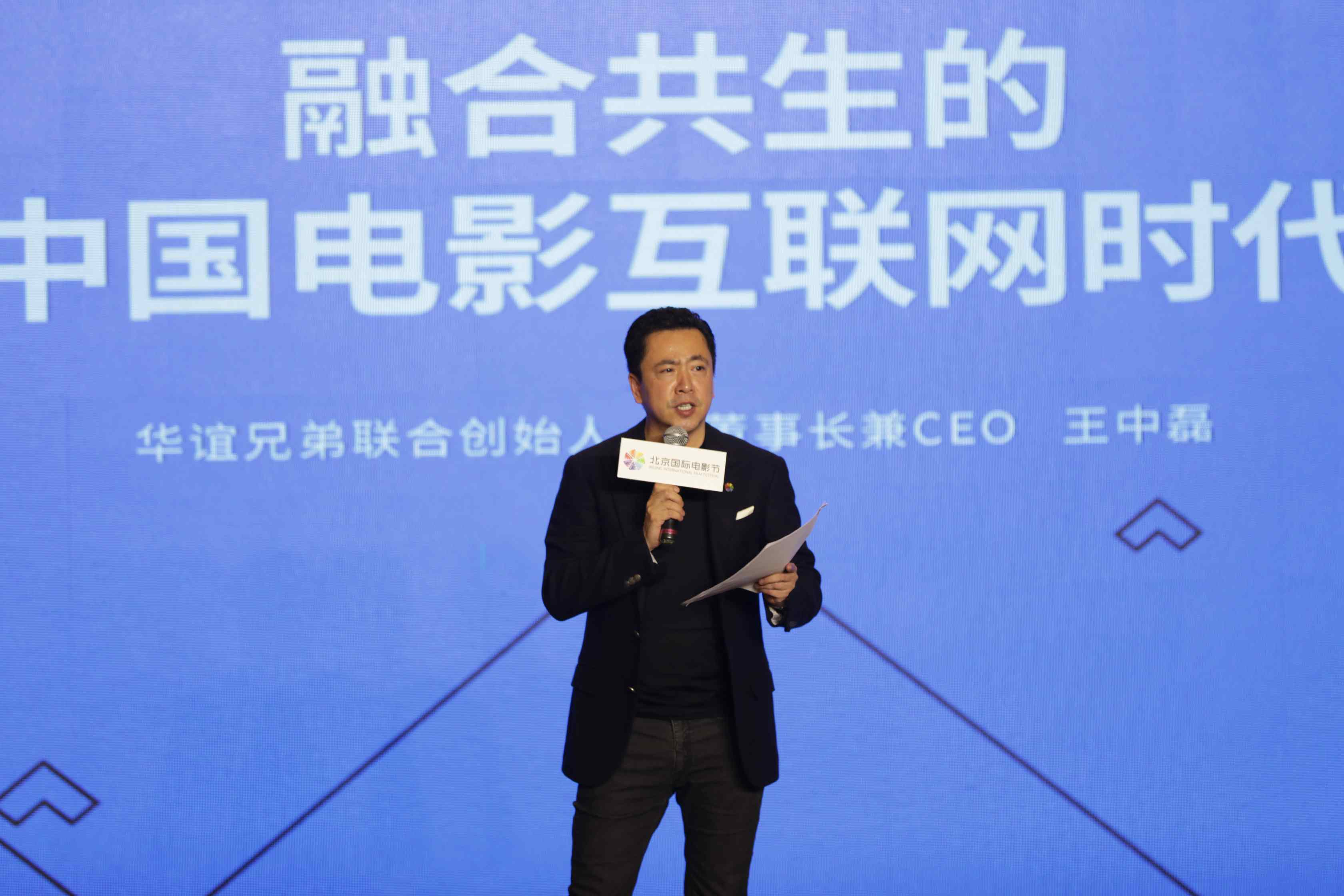
Wang Zhonglei, CEO and co-founder of the Huayi Brothers Media Corp., speaks at the forum. /CGTN Photo
Wang Zhonglei, CEO and co-founder of the Huayi Brothers Media Corp., speaks at the forum. /CGTN Photo
While admitting that the Internet has brought big changes and challenges to the traditional film companies, he said the Internet has also activated the whole industry.
“Internet has already changed the film industry chain,” he said. “It has changed customers' habits in terms of consumption; for instance, the younger generation are quite used to buying film tickets online, which no doubt impacted the cinemas to some extent.”
“They have also altered the traditional distribution form. Nowadays, we could see an increasing number of ‘dark horse' films in non-Hollywood productions, and most of them were shot to fame through the social media, spreading by the online surfers, that's an example of what Internet has provided more opportunities for the industry,” Wang explained.
But, there are negative sides. For instance, the respect for the artistic creation rules in the film industry has been abandoned, Wang noted.
He referred to the overestimation of what role “big data” plays in the success of a film, especially in the previous years.
“At one time, everyone believed that network flow determined the box office of a film. Everyone became a director at the time, with a media darling as the leading star, who secures the box office.”
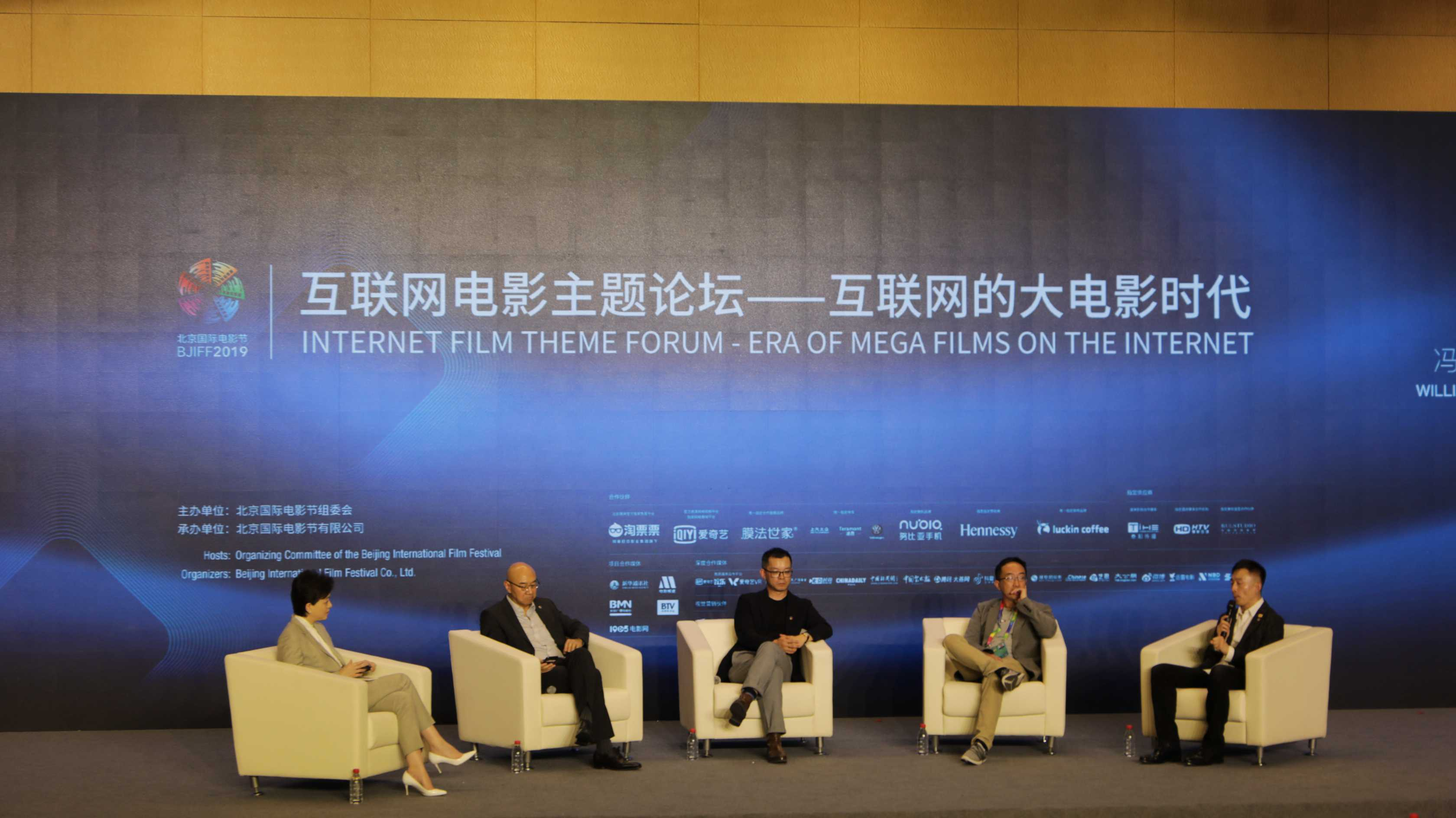
A saloon at the forum. /CGTN Photo
A saloon at the forum. /CGTN Photo
“The production of films should be artistic creation, which requires the efforts of directors, screenwriters, and actors. It is not an art of data,” Wang said.
“What the Internet should do is to elevate the efficiency, not replace the traditional industry.”
Back to the origin: Content is king!
The Chinese insiders have been groping with new models, while in the U.S., new models have already emerged.
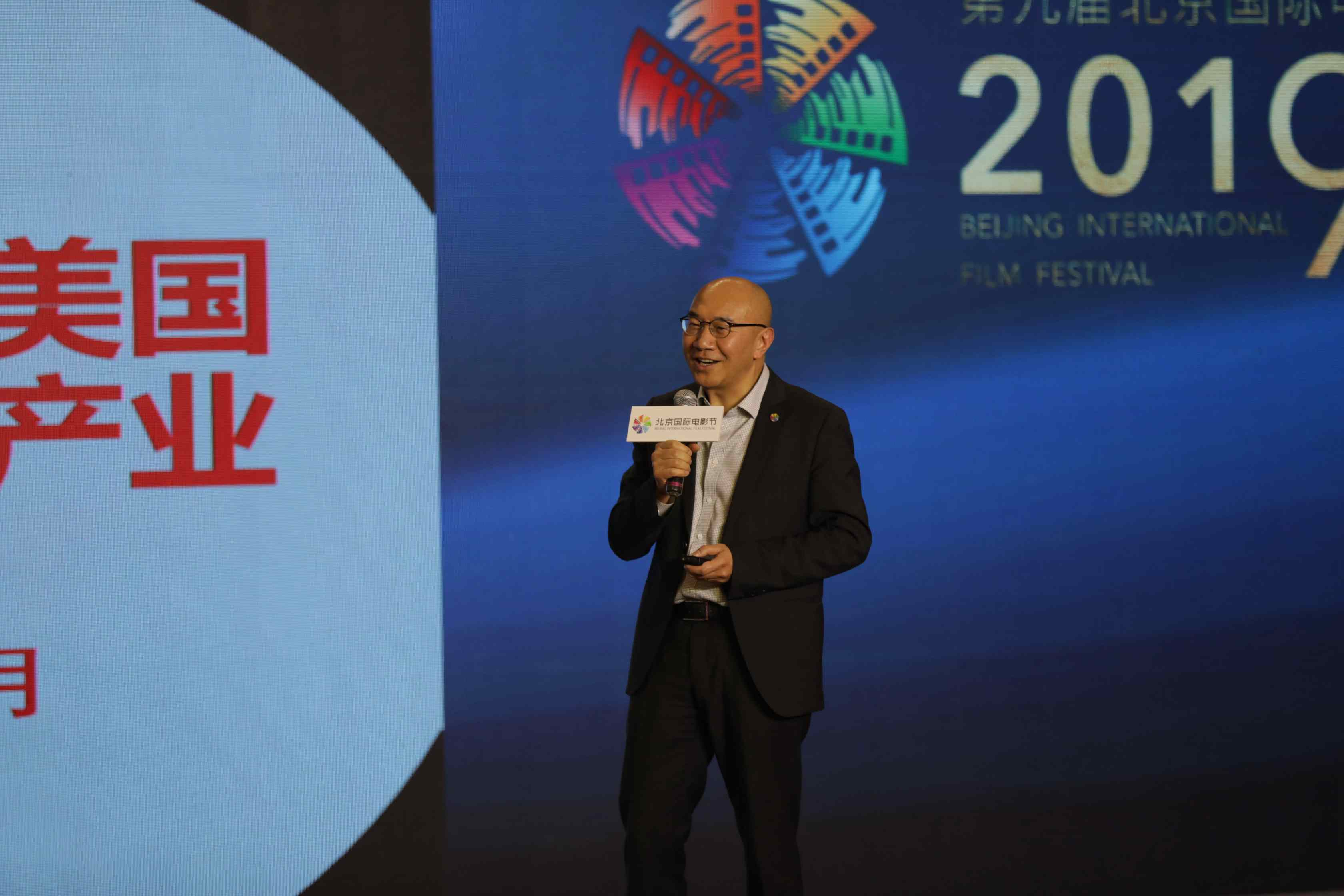
Feng Wei, president of the Motion Picture Association of America (MPAA) China, speaks at the forum. /CGTN Photo
Feng Wei, president of the Motion Picture Association of America (MPAA) China, speaks at the forum. /CGTN Photo
Motion Picture Association of America (MPAA) China President Feng Wei cited Netflix's joining the MPAA as an example. It is the first tech company to join the Hollywood trade group, the membership of which includes Disney, Paramount, Sony, Universal, Warner Bros and 20th Century Fox.
“It doesn't necessarily means that Netflix has turned into a traditional film company. Instead, it still maintains its mode of thinking as a tech company, seeking a deeper way of cooperation with the traditional firms.”
“This is an era of revolution,” Feng said, “and the customers would be the final winner.”
Apparently, no matter the tech firms or the traditional studios, all have agreed that sooner or later, the integration development will happen. It is the inevitable trends, which enjoys a promising future.

Li Jie, senior vice president of Alibaba Pictures, speaks during the forum. /CGTN Photo
Li Jie, senior vice president of Alibaba Pictures, speaks during the forum. /CGTN Photo
Then what is the unchanged thing in the ever changing industry?
"Content is king,” said Li Jie, senior vice president of Alibaba Pictures. “A good story and the artist who could tell such stories will never be outdated.
“Whatever you do, distribution channels or content, the only way to success is to become the best, otherwise, you are doomed to lose,” said Li.
(Photographs by Xu Haoming and Zhu Danni)








